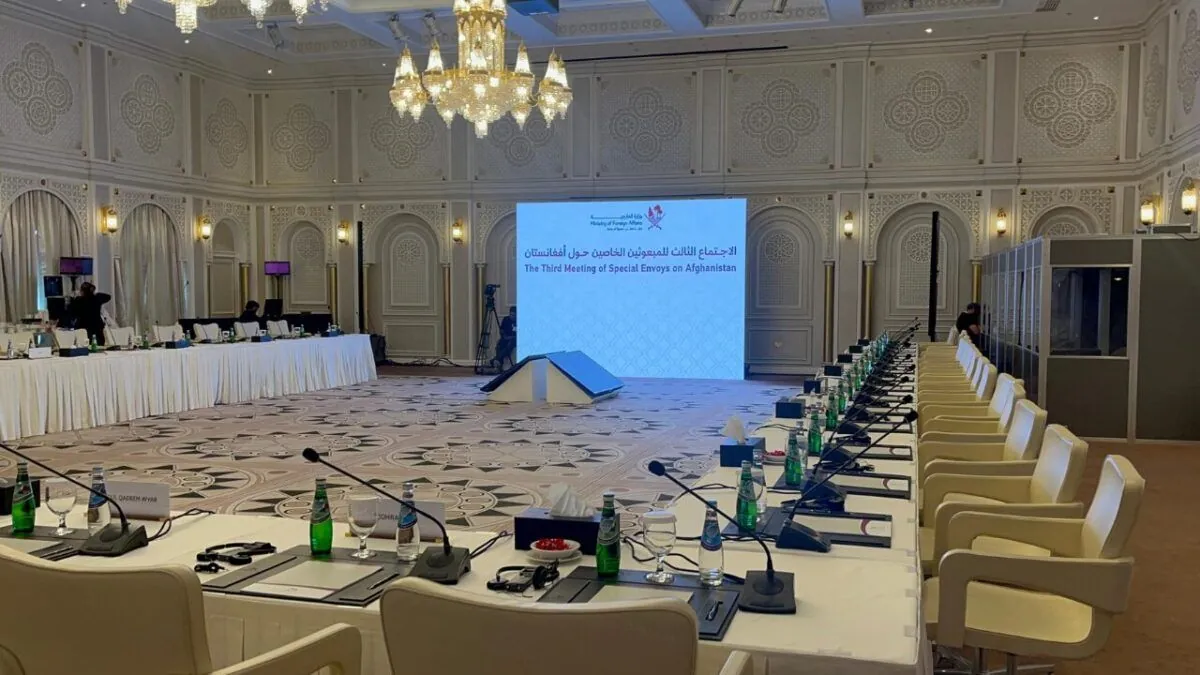Gaza Cease-fire Talks Resume in Qatar Amid Ongoing Diplomatic Efforts
Negotiations for a Gaza cease-fire and hostage release are set to resume in Doha, with the US, Egypt, and Qatar mediating. Hamas's absence and recent challenges highlight the complexity of the peace process.

Diplomatic efforts to broker a cease-fire in Gaza and secure the release of hostages are set to continue, with negotiations resuming in Doha, Qatar on August 15, 2024. The talks, mediated by the United States, Egypt, and Qatar, will include Israeli representatives, but Hamas will not be present initially.
The absence of Hamas from the negotiations table underscores the ongoing challenges in the peace process. A member of the group's political bureau stated that Hamas would reengage if Israel demonstrates a "clear commitment" to their latest proposal. The group has informed mediators of its willingness to participate in future sessions if there are significant developments or a serious response from Israel.

The U.S. State Department's deputy spokesman, Vedant Patel, expressed confidence in Qatar's diplomatic efforts, stating that Qatari officials have assured them of working towards Hamas' representation in the talks. This diplomatic push comes amid a complex backdrop of regional tensions and humanitarian concerns.
The most recent negotiating session, held in Rome in July 2024, faced obstacles as Israel insisted on additions to a framework announced by President Biden on May 31, 2024. These additions included Israel's military retaining indefinite control of the Gaza-Egypt border. U.S. officials noted that Hamas had appeared to meet the conditions of Biden's proposal, which called for a six-week cease-fire and partial hostage release in its first phase.
"The ongoing negotiations highlight the intricate nature of achieving peace in the region, with multiple stakeholders and competing interests at play."
The assassination of Hamas leader Ismail Haniyeh last month, who was a key member of the negotiating team, has further complicated the peace process. Both Israel and Hamas continue to blame each other for the delay in reaching an agreement.
U.S. Secretary of State Antony Blinken has been actively engaged in diplomatic efforts, discussing the importance of a cease-fire with Qatari Prime Minister Mohammed bin Abdulrahman Al Thani and Egyptian Foreign Minister Badr Abdelatty. The United States is expected to be represented by CIA Director William J. Burns, with the White House's Middle East adviser, Brett McGurk, also anticipated to be in the region.
Israel's delegation will include David Barnea, head of Mossad, Shin Bet chief Ronen Bar, and Maj. Gen. Nitzan Alon. This team has been granted a mandate to negotiate by Israeli Prime Minister Benjamin Netanyahu, a significant development in the negotiation process.
The ongoing conflict has had far-reaching consequences, including impacting academic institutions. Columbia University President Minouche Shafik resigned on August 14, 2024, following intense scrutiny over the university's handling of pro-Palestinian student protests and accusations of antisemitism.
The human toll of the conflict remains staggering. The Gaza Health Ministry reports that at least 39,965 people have been killed and 92,294 injured in Gaza since the war began in October 2023. Israel estimates that approximately 1,200 people were killed in Hamas's October 7, 2023 attack, with 330 soldiers lost in the subsequent military operation in Gaza.
As negotiations resume, the international community watches closely, hoping for a breakthrough that could bring an end to the violence and pave the way for lasting peace in the region.


































